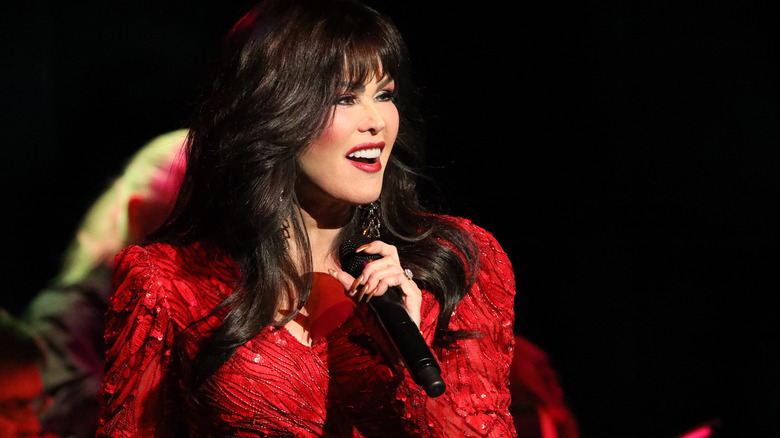Introduction:
There are songs that simply fill the air, and then there are songs that fill the heart. Marie Osmond’s rendition of “You Don’t Have to Say You Love Me” belongs to the latter — a timeless confession sung with the quiet strength of a woman who has loved, lost, and learned that true affection often exists beyond words. Originally a global hit in the 1960s, the song found new life through Marie’s voice — soft yet unshakably sincere, polished yet profoundly human. In her hands, the melody becomes not just a pop classic, but a deeply personal letter to anyone who has ever stood at the crossroads between love and letting go.
Marie does not perform the song as a diva reaching for high notes; she inhabits it as a storyteller painting her truth in sound. Her phrasing is deliberate, her tone glows with restraint — as if she’s whispering through heartbreak rather than surrendering to it. Each line carries a fragile honesty, revealing the ache of someone willing to accept silence when love can no longer be spoken. “You don’t have to say you love me,” she sings, but beneath those words lies a quiet plea — please don’t stop feeling it. That duality, that delicate space between pride and pain, is what gives the song its haunting power.
Through the years, Marie Osmond has built her legacy on warmth, grace, and sincerity — qualities that shine most brightly in this song. While many remember her for youthful hits like “Paper Roses,” this track reveals another side: mature, introspective, and emotionally fearless. It captures the journey of a woman who has faced the world’s spotlight, survived its shadows, and still finds courage in vulnerability. The arrangement — lush yet understated — wraps around her like a memory, never overpowering, only elevating the ache in her voice.
Listening to this version feels like sitting in the quiet aftermath of love — that moment when the room is still, and all that remains is the echo of what was once shared. Marie’s interpretation reminds us that love does not always need to be declared aloud to be real. Sometimes, its truest form is found in understanding, in the silence between two hearts that once beat in rhythm.
In an era when so much music aims to impress, “You Don’t Have to Say You Love Me” stands as a reminder that the simplest emotions often speak the loudest. Marie Osmond doesn’t just sing the song — she lives it, offering listeners a tender portrait of love’s endurance beyond words. It’s a performance that transcends time, proving that the language of the heart will always be universal, even when spoken in silence.
